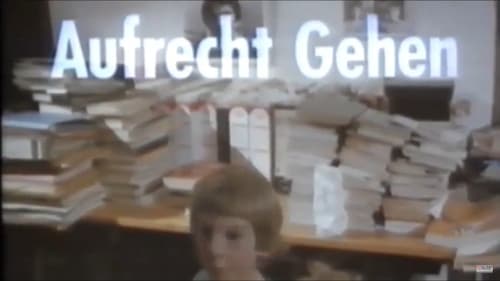Helga Reidemeister
출생 : 1940-02-04, Halle an der Saale, Germany

Director
Hossein and Shaima have loved each other since childhood. As teenagers they were separated by war. They meet again in Kabul in the late 90s. Poverty forces Hossein to fight in the war. A shell splinter leaves him paralyzed. Shaima is sold into marriage with a man 40 years her senior and falls pregnant. Since Shaima's husband still owes half the dowry to her father he brings her back into the constraining patriarchal fold of the family, where she lives with her 5-year-old daughter. This situation doesn't prevent the two from seeing each other, even though this means going against their families' hard rules. In constant fear of revenge on the part of the male members of both families, they struggle to hold on to their love.

Director
Directed by Helga Reidemeister

Director
Documentary film.

Director
Merely a few years after the fall of the Wall, Berlin is in a state of upheaval. Mammoth construction sites, particularly in the new government district between Bellevue and Tiergarten, reveal the city's efforts to take on the architectural appearance of a modern new capital - a task that risks scarring the face of the old metropolis, forever wiping out the material presence of its history, marring the memory of it in the minds of its inhabitants. Helga Reidemeister documents these changes with a poetic eye for the complicated beauty of today's Berlin, while avoiding sentimental or conventional language. Music by world-renowned jazz trombonist Konrad Bauer contributes much to the haunting beauty of this work.

Director
Documentary film.

Writer

Director

Director
This poetic documentary shows people and situations from both East and West Berlin. As if invisible, the camera crosses over the wall several times, fusing the experiences into something that didn’t exist in the mid-eighties—outside of the cinema. 25 years after the Berlin Wall was built, perhaps the most horrifying aspect was that the Berliners took it for granted and had learned to ignore it. The wall was mirrored in everyone’s head. This film questions that ingrown attitude.

Director
An intimate portrait of the German model and former Playboy Playmate Hilde Kulbach.

Director
Karola Bloch talks about her marriage with Ernst Bloch and shares her views on the current state of communism.

Still Photographer
A portrait of a family in Berlin in the late 1970's, this film focuses on the mother.

Writer
A portrait of a family in Berlin in the late 1970's, this film focuses on the mother.

Director
A portrait of a family in Berlin in the late 1970's, this film focuses on the mother.

Editor
portrays the Bruder working class family, whom she met during her time as a social worker in the Märkisches Viertel. Equipped with a Super-8 camera by Helga Reidemeister, the family had already begun filming their everyday life independently in the fall of 1969. However, when, together with Reidemeister, they looked through the four-hour material at the editing table in the summer of 1974, they realized that it depicted the family's problems only superficially and left the social context out of the picture. Reidemeister, who had not yet intervened in the film shooting, then spent a lot of time with the family and documented everyday life together with them. The result was a multi-layered mixture of family self-testimony and reflection on social relationships.

Director
portrays the Bruder working class family, whom she met during her time as a social worker in the Märkisches Viertel. Equipped with a Super-8 camera by Helga Reidemeister, the family had already begun filming their everyday life independently in the fall of 1969. However, when, together with Reidemeister, they looked through the four-hour material at the editing table in the summer of 1974, they realized that it depicted the family's problems only superficially and left the social context out of the picture. Reidemeister, who had not yet intervened in the film shooting, then spent a lot of time with the family and documented everyday life together with them. The result was a multi-layered mixture of family self-testimony and reflection on social relationships.

Director






